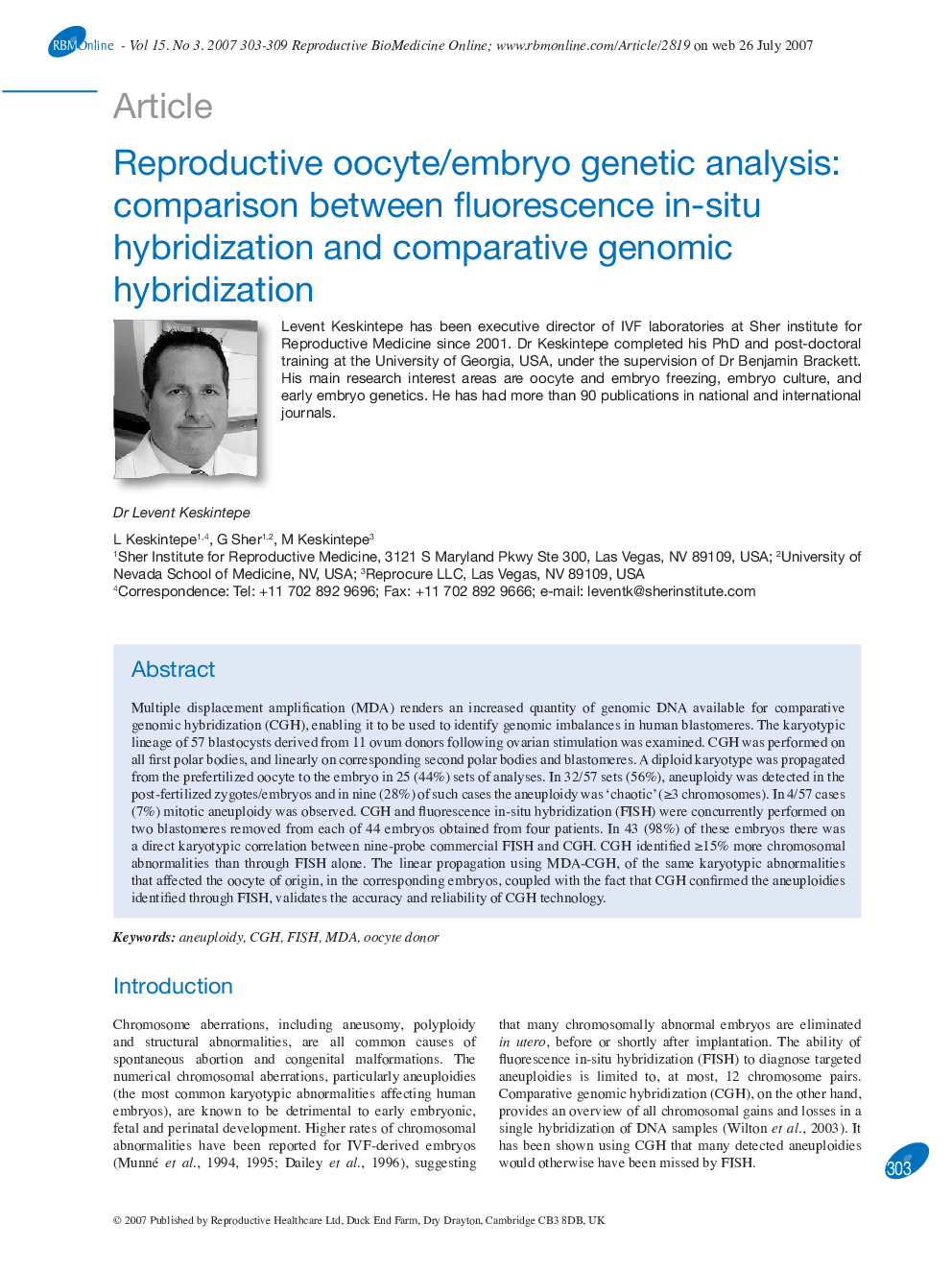| Article ID | Journal | Published Year | Pages | File Type |
|---|---|---|---|---|
| 3971459 | Reproductive BioMedicine Online | 2007 | 7 Pages |
Multiple displacement amplification (MDA) renders an increased quantity of genomic DNA available for comparative genomic hybridization (CGH), enabling it to be used to identify genomic imbalances in human blastomeres. The karyotypic lineage of 57 blastocysts derived from 11 ovum donors following ovarian stimulation was examined. CGH was performed on all first polar bodies, and linearly on corresponding second polar bodies and blastomeres. A diploid karyotype was propagated from the prefertilized oocyte to the embryo in 25 (44%) sets of analyses. In 32/57 sets (56%), aneuploidy was detected in the post-fertilized zygotes/embryos and in nine (28%) of such cases the aneuploidy was ‘chaotic’ (≥3 chromosomes). In 4/57 cases (7%) mitotic aneuploidy was observed. CGH and fluorescence in-situ hybridization (FISH) were concurrently performed on two blastomeres removed from each of 44 embryos obtained from four patients. In 43 (98%) of these embryos there was a direct karyotypic correlation between nine-probe commercial FISH and CGH. CGH identified ≥15% more chromosomal abnormalities than through FISH alone. The linear propagation using MDA-CGH, of the same karyotypic abnormalities that affected the oocyte of origin, in the corresponding embryos, coupled with the fact that CGH confirmed the aneuploidies identified through FISH, validates the accuracy and reliability of CGH technology.
